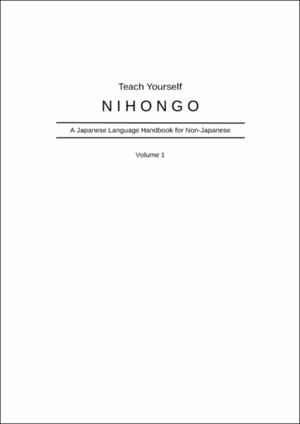Teach Yourself NIHONGO
Abstract
In Japanese, Japan is called Nihon or Nippon, and the Japanese language is called “Nihon-go” or "Nippon-go" (-go means language). The Japanese language is very different from English and most other European languages. Basically, Japan- its people, culture, ways of thinking, social behavior, language etc. are unique owing to its own established identity.
People are dependent on language to communicate with one another. But language is much more than a common protocol for the exchange of communication. Language determines how we perceive the world around us. It filters as well as exaggerates information. Language shapes our thoughts and conceptualizations. Ultimately, language is the means with which we grasp reality.
Japanese language is unique to both linguists and to the people speaking the language. The Japanese by and large believe their language to be a highly unique language—some believe it to be unlike any other language in existence.
Another unique aspect of the Japanese language is the availability of three separate alphabets. The Japanese writer has the choice between the Hiragana (the standard, default phonetic alphabet), Katakana (the alternate phonetic alphabet), and Kanji. Kanji are comprised of thousands of Chinese ideographic characters that were imported from China nearly one thousand years ago and have changed little since then.
Unlike English, Japanese constructs sentences in a Subject-Object-Verb structure (called an SOV language; English constructs sentences as Subject-Verb-Object, or SVO). While this is familiar to people who've studied other languages, it expresses a relationship between the subject and object that is far more intimate than that expressed in English.
Collections
- Books [1]
